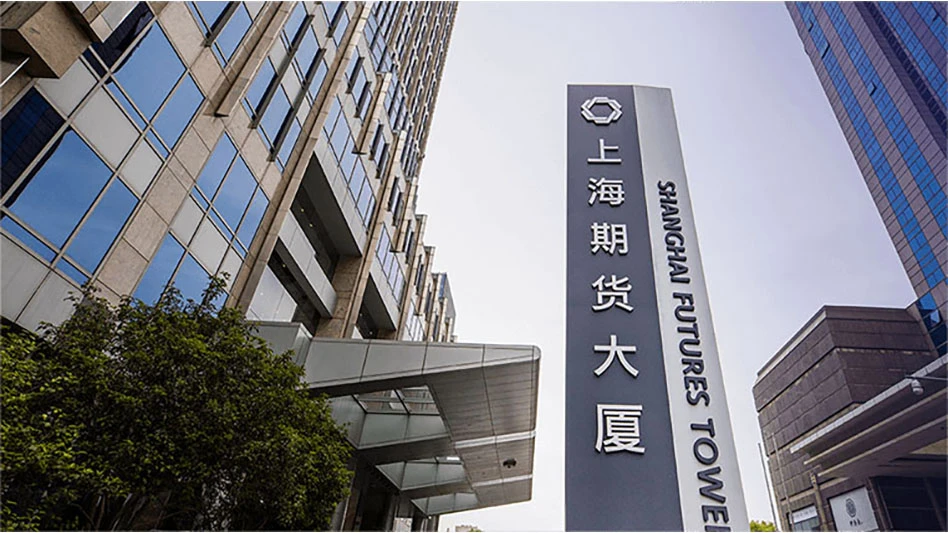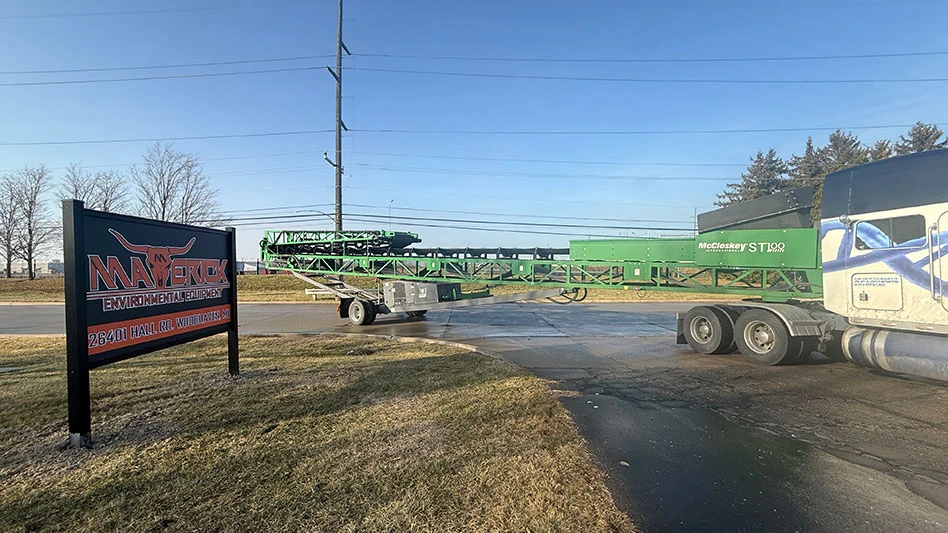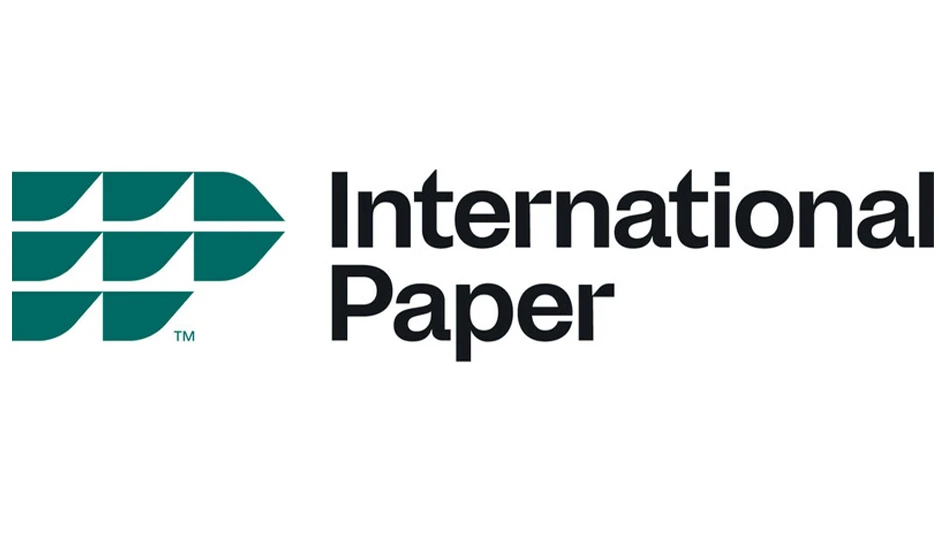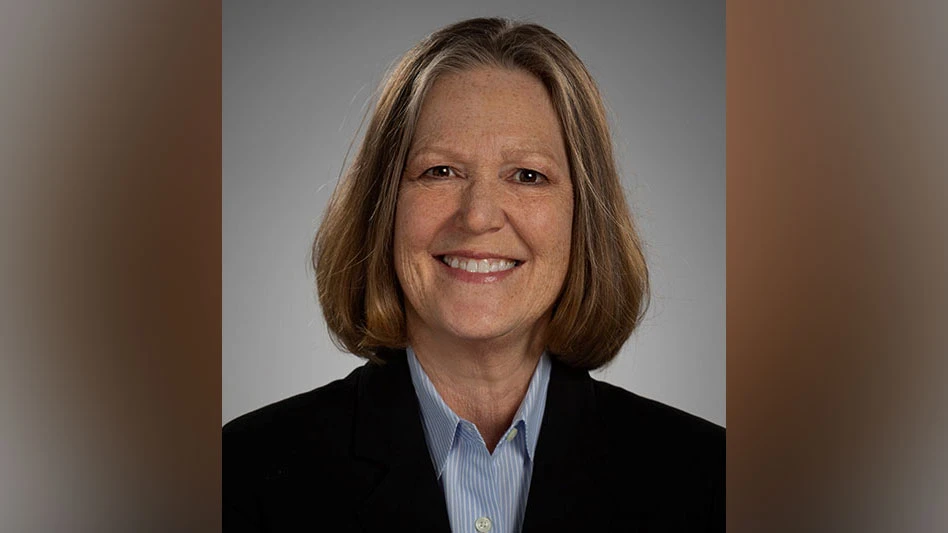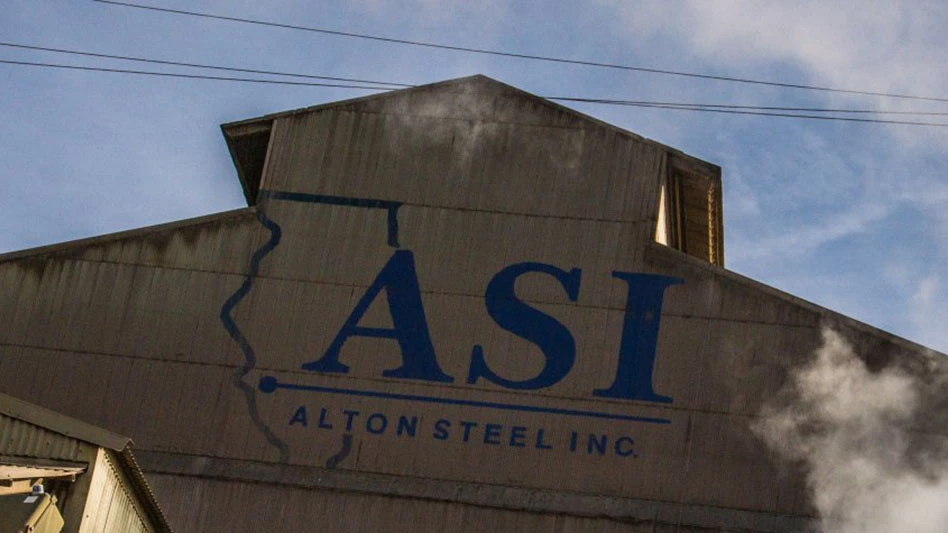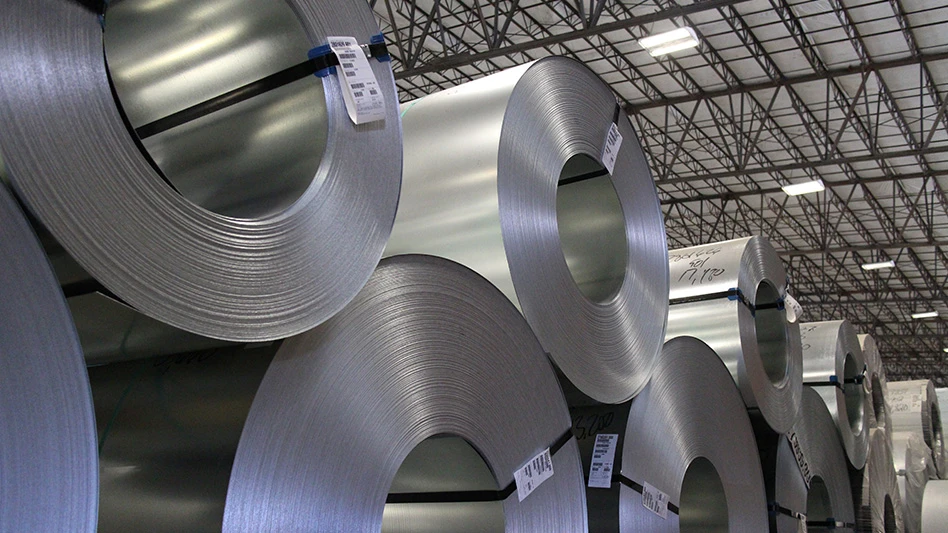Businesses define growth in different ways. For Windfield Alloy Inc., growth isn’t just about getting bigger—it’s about doing more and branching out from where it started.
Some companies grow by doing more of the same, but the Atkinson, N.H.-based company has followed a different path to success by adding services and becoming a more diverse operation with every step.
Four divisions function under the Windfield Alloy name—precious metals refining, electronics recycling/asset management, nonferrous recycling and ferrous recycling. "They work hand in hand with each other," says Eric Tetler. Growth through diversity is key to Windfield’s business philosophy, Tetler says.
DIVIDE AND CONQUERWindfield was established in 1978 as a primary precious metals refiner by Tetler’s father-in-law, Arthur Caras. The company’s roots were in the processing and production of pure fine bullion in the gold, silver and platinum metals groups. In the recovering of those precious metals from the electronics industry, the company saw its first opportunity to branch out from its core business, Tetler says, by moving into the recycling of those electronics as well as asset management. The group began handling materials including PCs, printers and other electronics.
As volumes increased, Windfield saw another opportunity in the form of a nonferrous recycling operation, preparing copper, aluminum and other nonferrous scrap metal and selling the material directly to consumers. The evolution of the company continued, and Windfield added a ferrous operation in 2000, Tetler says.
The diverse components of Windfield Alloy are all interrelated and contribute to the company’s success as a whole, Tetler continues. "Each group generates material that the other group processes," he says. "For example, our electronics recycling group generates 100,000 pounds per week of computer wire, which the nonferrous group handles. The electronics also generate circuit boards for the refining group and tons of light iron for the ferrous group. So internally these recycling streams are not sent off to independent groups in each recycling industry, maximizing our recycling possibility and our overall financial returns on the materials."
Furthermore, the ferrous operation generates electronics from consumers as well, he continues, just as the nonferrous group generates materials like gold-plated copper or gold-plated brass, which the refining group will process. "The picture is for each division to benefit off the next in capabilities, volumes and financial gain," says Tetler.
The diverse operations help work flow efficiently at Windfield’s two sites. The company’s Atkinson, N.H., location became Windfield’s headquarters in January 2007 and houses offices for management and sales staff as well as warehouse space for the electronics and nonferrous divisions. The company’s old headquarters in Lawrence, Mass., houses the refining, ferrous and nonferrous operations.
The company as a whole processes an average of 1.5 to 2 million pounds per week of various materials. Between the two facilities, Windfield Alloy has full chemical refining capabilities for its precious metals division, baling and logging capabilities for its ferrous and nonferrous metals and dismantling/shredding and remarketing operations for its electronics.
In addition to maintaining efficient operations, the diverse elements also help Windfield maximize its service to its customers, says Tetler. "Each previous step has helped us pursue the next. As we market ourselves with the companies we service, or new business, the model of ‘one stop shopping’ and ‘cradle to grave’ really says it all about us," he says. "Our customers come and ask if we can handle this or that, and as they do, we adjust to their needs. Sometimes creating a new step, or a new process we undertake helps us serve them better. Without the diversity of our group, it would be difficult to say ‘yes’ to many of the questions our customers bring to us."
Diversity also gives Windfield the flexibility to adapt as the industry changes.
CREATING OPPORTUNITIESBeing active in multiple market segments means Windfield has to weather many changes. Recent years have brought numerous changes to the scrap, metals refining and manufacturing industries.
Change brings challenges as well as opportunities, and Tetler sees the further globalization of the economy as a welcome opportunity in the scrap industry. "I believe that global trade issues are going to have only positive impacts on recycling," he says. "The world is a small place with many opportunities and is going to continue forcing our industry to be global."
To adjust to the global nature of the scrap industry, Tetler says Windfield has made efforts to align itself with other companies that complement its activities on a global scale.
On a more local scale, Tetler says he sees accountability as another key issue, especially as more and more companies get involved with the industry. "The downstream of the process is very important—accountability to the customer and to the environment," he says. "When a group says they are processing one way, there needs to be accountability that it is actually happening that way."
Government involvement, particularly in the electronics recycling sector, is also continuing to shape the industry, he says. "Who handles what, and how they handle it, is always on our mind, as it is with the EPA, DEPs, local and global authorities," Tetler says.
Even considering the shifting regulatory landscape, the globalization of the industry means competition is constantly increasing, which puts mounting pressure on companies to differentiate themselves in a crowded market. At Windfield, the ability to work as a small company while handling volumes like a large company is one way to stand out, Tetler says.
STRIKING BALANCEWorking with big volumes while maintaining a small-company style and feel is striking a delicate balance, says Tetler. "The key to achieving that balance is maintaining a hands-on approach from all levels the groups. That would be from the supervisors to the managers to the principals of the company being involved with all facets of the company from operations to corporate levels," he says.
In an age of digital communication, Windfield still emphasizes face-to-face communication as the best way to keep everyone involved. "Weekly operations meetings, weekly sales meetings, monthly corporate meetings, weekly volume reports…" Tetler outlines. "All divisions see what the other divisions are doing to create friendly competition. Communication is key. In order for all divisions to work simultaneously, communication among division leaders is a must."
Tetler boils Windfield’s company philosophy down to two key elements: diversity and personality. "One must be personable to deal with the wide variety of characters in the business, and one’s operations must be diversified and capable of handling the industry’s needs," he says. He draws inspiration from a quote from Winston Churchill, "Success is not final, failure is not fatal—it is the courage to continue that counts."
Tetler says, "The philosophy to do good, smart business is what will make a 30-year-old company become a 130-year old company."
The author is associate editor of Recycling Today and can be contacted at jgubeno@gie.net.

Explore the March 2008 Issue
Check out more from this issue and find your next story to read.
Latest from Recycling Today
- Stadler equips Spanish MRF
- SSAB finishes 2025 with decreased revenue
- Vecoplan appoints CFO
- Aurubis raises full-year forecast
- Levitated Metals adds LIBS sorting technology
- Redwood Materials closes on $425M in Series E financing
- Updated: Wieland Chase expands northwest Ohio facility
- Recovered paper traders report lukewarm market
